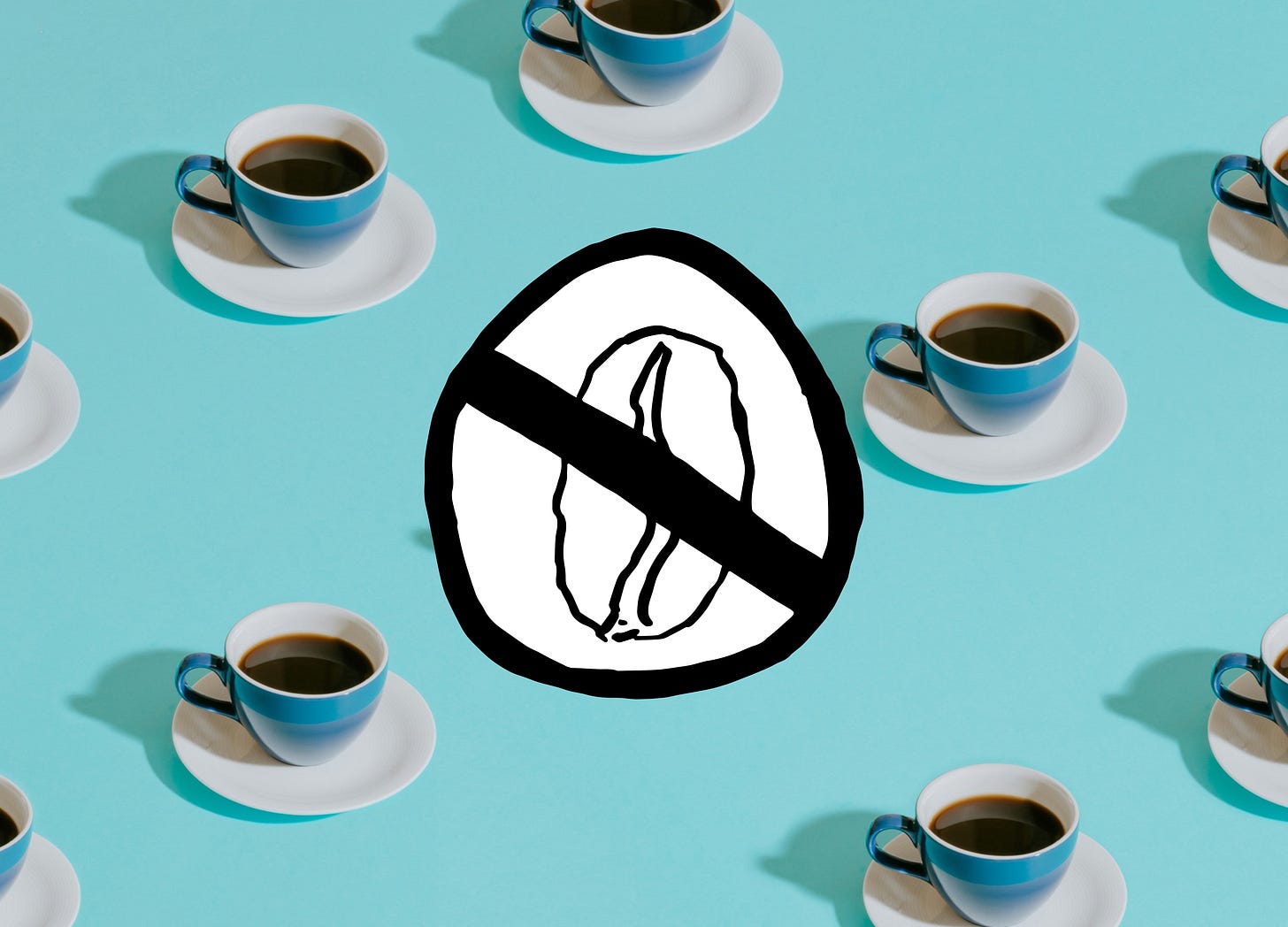☕️ Climate Change is Brewing Trouble for Coffee Production
Startups are betting on making coffee without the bean.
Hey there 👋
When I open the bag of coffee in the morning the smell envelopes the room like a perfume. A slight fruitiness, the smell of earth and the scent of roasting. The rumble of the kettle boiling and the grinding of the beans drowns out all other noise. I focus on pouring slowly, in circles, and see the first drips bouncing in the pot. For a few minutes each morning nothing else is important. The ritual of making a perfect cup of coffee with beans from a single farm from the other side of the world has become therapeutic.
Despite the need for it and the joy of consuming it, I almost take it for granted. What would a world without coffee be like? I’d rather not think about it. But coffee might transform from a daily ritual into a once in a while treat.
Coffee is both a victim of and a contributor to climate change. Every morning the 14 grams of coffee beans that I grind are responsible for 29 times its weight in CO2e emissions. That’s more than cheese, pork, or poultry. I wouldn’t say that I’m a heavy coffee drinker, one cup a day is fine. Our collective consumption though, is quite large. In 2023 we consumed 11 billion tonnes of coffee, emitting 306 million tonnes of CO2e. At the same time, half of the land used to grow coffee today may become unsuitable for coffee cultivation by 2050. Rising temperatures will lead to changes in rainfall patterns, more intense droughts and the spread of diseases affecting coffee plants and pollinators.
Minus Coffee and Atomo are tackling both of those challenges by making coffee without the bean. After all, coffee doesn’t taste like coffee beans—the flavors that we love come from fermenting and roasting. Minus and Atomo do the same thing but with food scraps like chicory roots, date pits and lentils. Then, by adding caffeine they end up with a product like coffee that uses 94% less water and emits over 90% fewer greenhouse gasses. There doesn’t seem to be a loss in flavor either, when University of Washington students tried Atomo and Starbucks side by side, 70% of them preferred Atomo. The story is similar for Minus’ cold brew—they sold out of all 1,700 cans of their limited-edition release within 24 hours.
While cold brew coffee can be nice many of us wont be happy replacing our morning coffee with a canned product. It’s not the same experience as opening a fresh bag of beans and enjoying a hot cup of coffee. The founder of Atomo, Andy Kleisch, has the same opinion, “you want your morning ritual to stay the same”. They started experimenting with watermelon seeds and the hulls from sunflower seeds to get a ground coffee texture. And from their website it seems that they were successful. Gumption Coffee in New York City is now serving up coffees made with Atomo’s beanless espresso.
If we are already willing to try Kopi Luwak—a coffee picked from the shit of civet cats—drinking coffee made without beans is a small step. Reducing the climate impact of coffee and tackling food waste seems like a better proposition than enslaving civets to pre-digest coffee.
I for one, can’t wait to try a beanless brew.
Until next time, much love,
Pascal Vilhelmsson 🖤
Photo by Pawel Czerwinski on Unsplash. Drawing by me.





I guess you are waiting for a beanless cup ... ;)